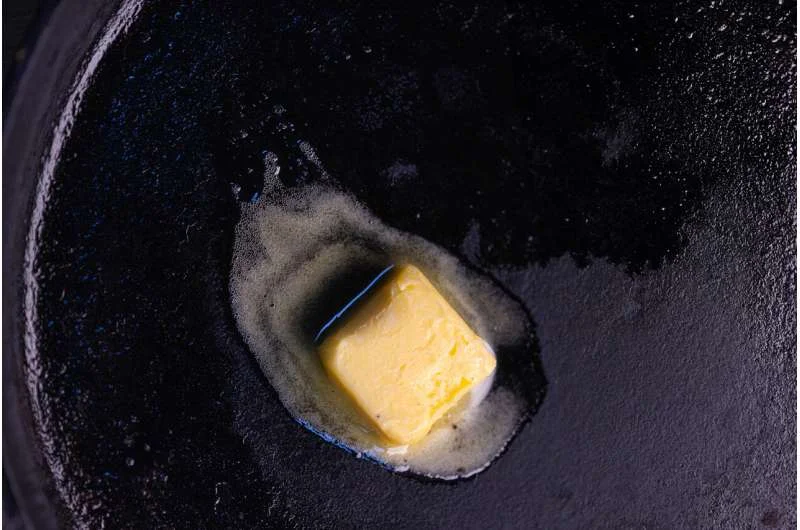Scientists suggest ways out of the climate crisis
- November 6, 2023
- 0
Agriculture is one of the most difficult human activities to decarbonize; people need to eat, but land use practices related to growing crops account for nearly a quarter
Agriculture is one of the most difficult human activities to decarbonize; people need to eat, but land use practices related to growing crops account for nearly a quarter

Agriculture is one of the most difficult human activities to decarbonize; people need to eat, but land use practices related to growing crops account for nearly a quarter of global greenhouse gas emissions. Researchers at UC Irvine and other institutions are evaluating a new solution to this problem that would eliminate farms altogether.
In a published study Nature SustainabilityA UCI-led team of scientists is evaluating the potential for large-scale synthetic production of edible oils using chemical and biological processes. The raw materials for this method are the same as for plants: hydrogen in water and carbon dioxide in air.
“Large-scale synthesis of edible molecules by chemical and biological means without the use of agricultural feedstocks is a very real possibility,” said lead author Stephen Davis, a professor in UCI’s Department of Earth Sciences. “Such ‘farm-free foods’ could avoid large amounts of climate-warming emissions, as well as preserve biodiverse soils that would otherwise be cleared for farms.”
Davis and his co-authors highlight other environmental and social benefits of farm-free food, including reduced water use and watershed pollution, local control over food production, reduced risk of weather-related food shortages, and less need for low-wage and physical food. Demanding farm labor. Another plus would be the ability to return existing farmland to its natural state, which could increase biodiversity and create natural carbon sinks, Davis said.
“I like the idea of not having to rely on photosynthesis for everything we eat,” Davis said. “Food synthesis would reduce competition between natural ecosystems and agriculture at all scales, thus avoiding many of the environmental costs associated with agriculture.”
Davis emphasized that rainforests are being destroyed to make way for palm oil plantations. Cookies, crackers, snack chips, and many other store-bought foods are made with dietary fats from this source. He asked if anyone would notice if the oil used to bake the cookies came from a refinery up the road rather than from a plantation in Indonesia.
The authors of the paper said they focused mainly on oils because they are “the simplest nutrients for thermochemical synthesis,” pointing to established large-scale soap-making and polymer chemistry technologies.
Researchers estimate that agriculturally derived oils are equivalent to approximately 1-3 grams of carbon dioxide emissions per thousand calories, while molecularly identical oils synthesized from natural gas feedstocks using available electricity would produce less than a gram of CO2 equivalent and nearly zero emissions. in the case of capturing carbon from the air and using zero-emission electricity sources.
“The beauty of oils is that you can synthesize them through processes that don’t involve biology. It’s all chemistry, and so you can work at higher pressures and temperatures, which gives you great efficiency,” Davis said. “So you can build big reactors to do this on a large scale.”
The big question remains: Will people accept food created this way?
“Food is a bigger problem than electricity; Few people care where the electrons in the wall outlet come from, Davis said, but many people care where our food comes from. “So processed foods are probably a use of synthetic oils. People may be less concerned about what fat is in a store-bought cookie or pie crust because they no longer know what’s in it.”
Source: Port Altele
As an experienced journalist and author, Mary has been reporting on the latest news and trends for over 5 years. With a passion for uncovering the stories behind the headlines, Mary has earned a reputation as a trusted voice in the world of journalism. Her writing style is insightful, engaging and thought-provoking, as she takes a deep dive into the most pressing issues of our time.